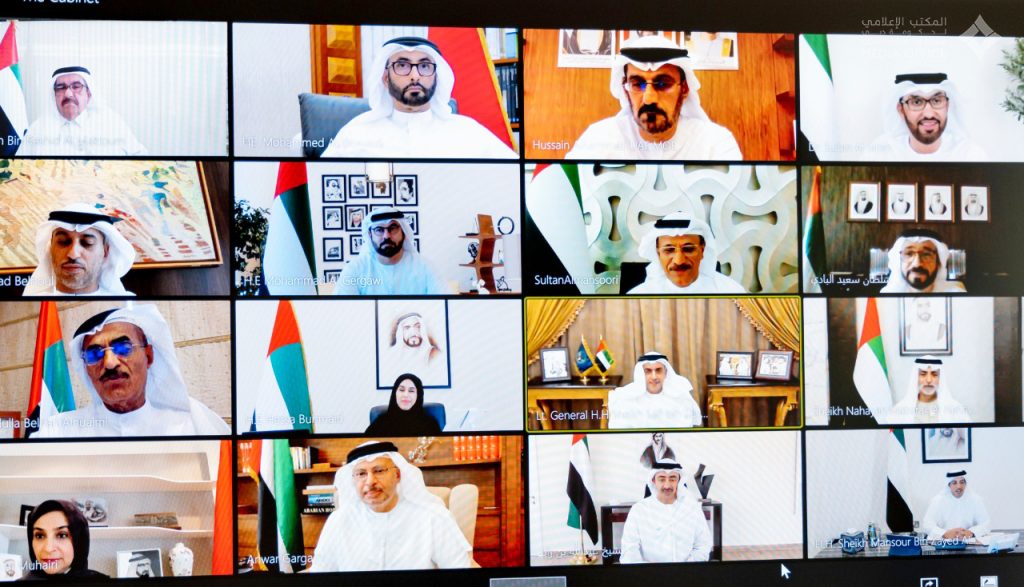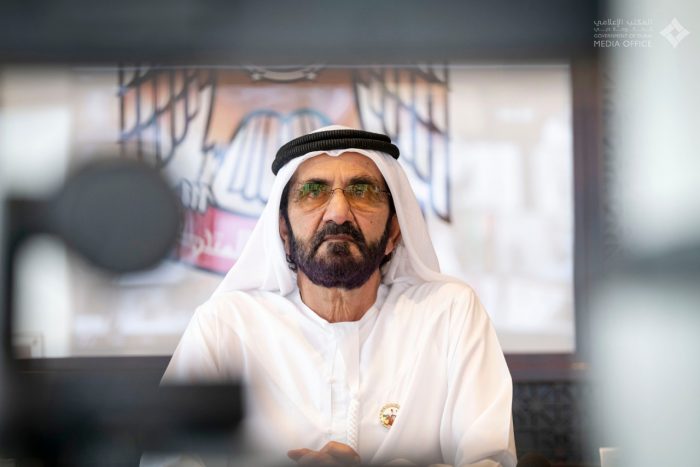Abu Dhabi: The UAE’s economy has proven its flexibility and ability to address challenges in previous years, and is considered to be one of the economies in the region capable of overcoming the implications of the pandemic, due to its diversity and competitiveness. This was mostly attained by strong leaderships with great vision.
At the onset of COVID-19, the UAE leaders and ministers have always kept working together through all possible means to ensure the fast recovery of the Emirates.

The temporary committee to handle impacts of COVID-19 held its fourth meeting, chaired by Sultan bin Saeed Al Mansouri, Minister of Economy, to discuss the national efforts to support the economy and the best ways of limiting the effects of the pandemic on the business sector.
At the start of the meeting, which was held remotely through video conferencing, Al Mansouri highlighted the importance of the national efforts and the role of the committee in drafting effective initiatives and procedures to protect the national economy and launching incentives to ensure business continuity.
The committee discussed several topics on its agenda, including the disbursement of the stimulus packages provided by the Central Bank of the UAE, with some 84.5 percent of incentives benefitting a total of 25 national banks, including 15 banks that withdrew 100 percent of their shares to benefit more than 133,000 clients, with many of them being SMEs.
Details of the remote meeting was shared through twitter.
The committee will also assess reports on the disbursement of support packages, increasing lending rates and supporting SMEs and local entrepreneurs, and discussed the progress of meetings with global payment networks to reduce credit card interest, which will have a direct impact on the business sector, especially wholesale and retail traders and SMEs.
The committee then discussed ways of protecting wages, in coordination with the Ministry of Human Resources and Emiratisation and the Central Bank of the UAE, through allocating some of the support packages to ensure workers’ wages and benefitting from the related experience of Abu Dhabi, which has launched 33 incentive initiatives over two phases, supported banking facilities for SMEs, and assisted companies in paying their workers’ salaries.
The committee reviewed an updated report on the incentives provided by government authorities to the business sector in Dubai during the crisis, amounting to 42 initiatives until 7th June 2020. Discussions on suggested initiatives by the Ministry of Economy related to supporting the macroeconomy, financing, and the continuity of businesses were also on the table.
It also discussed a comprehensive policy to support the national tourism sector during the stages of precautionary measures, recovery, and growth, as well as initiatives proposed by the Ministry of Energy and Industry to support Emirati medical products.
“The topics discussed by this committee will produce many national incentive packages to support the most affected sectors, through implementing procedures aimed at fighting the pandemic. We have to ensure this will benefit the targeted sectors, most notably small and medium-sized enterprises, SME, the tourism sector, and the trade and manufacturing sectors,” Sultan bin Saeed Al Mansouri added.




![The Top & Most Popular Seafood Bucket Restaurants in Dubai for you [Never Miss]](https://uae24x7.com/wp-content/uploads/2020/09/8-seafood-in-a-bucket-scaled-e1600739237403.jpg)
![Procedures for Renewing the Driving License in Abu Dhabi [3 Simple Steps]](https://uae24x7.com/wp-content/uploads/2020/07/Capture-9-e1595666454466.jpg)





